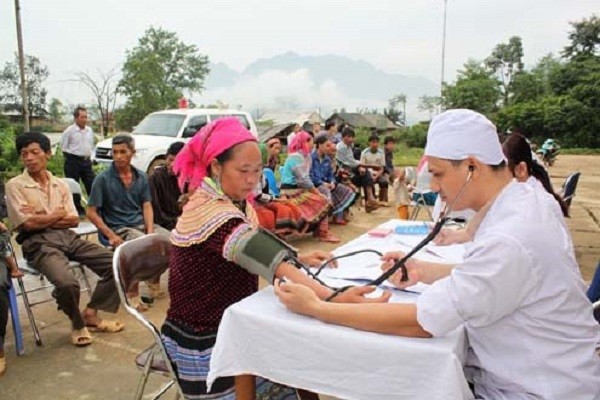(VOVWORLD) - August 9 is observed by the UN as International Day of the World’s Indigenous Peoples. This is an occasion for Vietnam to review its socio-economic development policies to improve the material, cultural and spiritual life of people living in ethnic minority and mountain areas.
 Infrastructure in ethnic minority, mountainous areas is constantly upgraded (Photo: baothainguyen.vn) Infrastructure in ethnic minority, mountainous areas is constantly upgraded (Photo: baothainguyen.vn) |
Vietnam is a multi-ethnic country with 54 ethnic groups living together. There are 53 ethnic minorities with nearly 14 million people (approximately 14.3% of the country's population). Ethnic minorities live mostly in remote, mountainous areas.
Throughout the national development process, the Vietnamese Party and State have consistently paid attention to ethnic issues and promoted equality between ethnic groups to ensure national unity. At the 13th National Party Congress, Vietnam continued to affirm the strategic importance of national unity policies designed to "ensure equality between ethnic groups, solidarity, respect, and mutual support throughout national development.”
Vietnam’s policies on industrialization, modernization, and international integration have demonstrated its desire to ensure equality and development opportunities among ethnic minority groups. Vietnam’s adoption and implementation of recommendations concerning the equal rights of ethnic minority groups under Cycle III of the Universal Periodic Review of Human Rights of the UN Human Rights Council is among such efforts.
These recommendations are focused on anti-discrimination and ensuring basic rights for ethnic minorities, including the right to education, culture, religious belief, and socio-economic development.
 The healthcare network in ethnic minority and mountain regions is gradually improved (photo: daidoanket.vn) The healthcare network in ethnic minority and mountain regions is gradually improved (photo: daidoanket.vn) |
Ensuring the right to education for ethnic minorities is a fundamental goal of Vietnam's development policy. Vietnamese law stipulates that the State gives priority to education in mountainous areas, islands, ethnic minority areas, and disadvantaged areas.
There are 5,766 preschools in Vietnam and all of them are following the new preschool program. Ethnic minority and mountain provinces have been recognized for achieving universal preschool for 5-year-olds and universal primary and lower secondary education for older children.
The Government has implemented investment programs, policies, and projects to develop essential infrastructure in ethnic minority areas. These include the National Target Program on Sustainable Poverty Reduction 2016-2020, the National Target Program for New Rural Development, and Program 135. Vietnam has paid attention to the conservation and promotion of the languages and scripts of ethnic minorities.
Each year Vietnam organizes multiple cultural, art, and sports festivals among ethnic groups and the number of radio and television programs broadcast in ethnic languages has been growing. Journalists have helped deliver Party guidelines and State policies to ethnic minority groups through their stories.
The health care network in ethnic minority regions has been upgraded with much investment in provincial, district, and communal hospitals, giving ethnic minorities better access to health care. The health care network in ethnic minority areas has been strengthened with better medical facilities and more qualified staff and doctors. The national target program on socio-economic development in ethnic minority areas in the 2021-2030 period is focused on investing in healthcare and human resource development.
The government has adopted a program on protecting and developing less populous ethnic minorities in the 2021-2030 period that focuses on enhancing their status, reducing poverty, improving their living conditions, and narrowing the development gap between groups.
The government has also focused on preventing religious discrimination and inequality between ethnic groups, pursuing a consistent policy of respecting the freedom of belief and religion and creating conditions for religious organizations to practice their beliefs in line with the law. The Vietnamese Party and State have invested in upgrading infrastructure in remote, mountainous, ethnic minority areas.
Under the National Assembly Resolution and the national target program on socio-economic development in ethnic minority areas in the 2021-2030 period, 10 infrastructure development projects and sub-projects have been implemented.